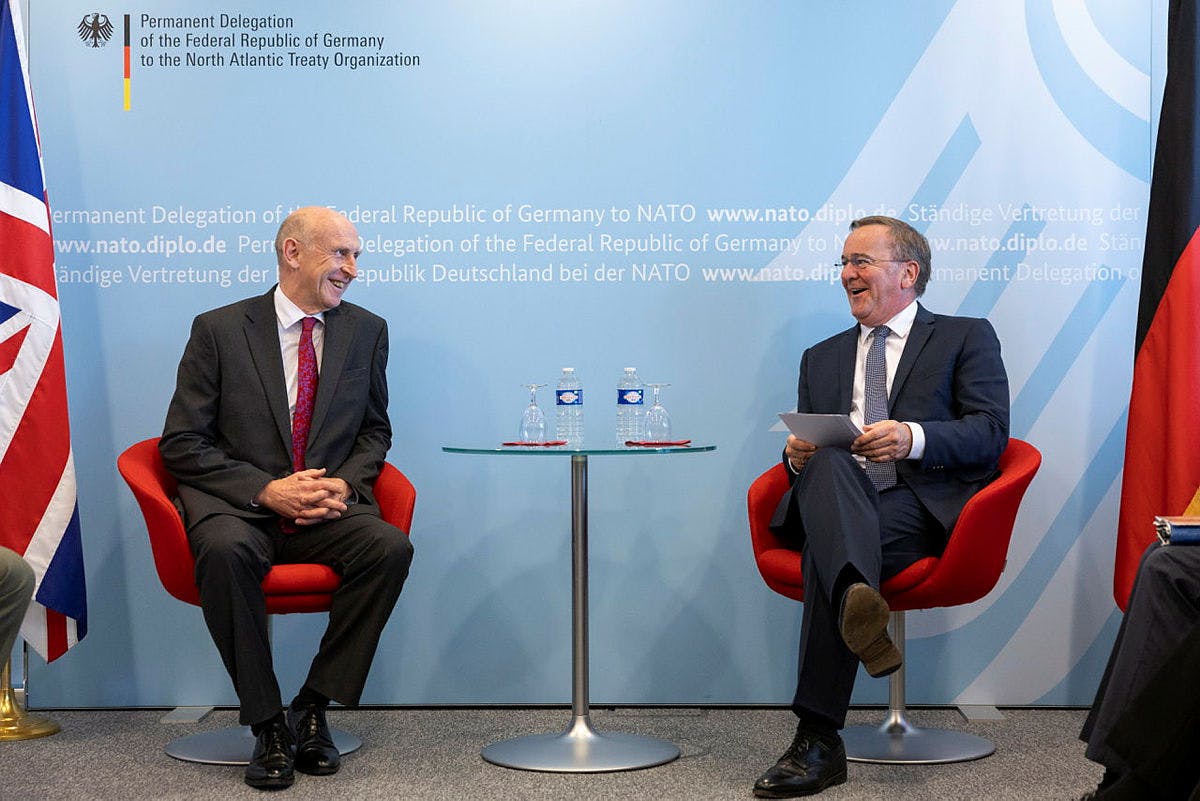The UK and Germany have signed the groundbreaking Trinity House Agreement, marking a new era of defence cooperation between the two nations.
Defence Secretary John Healey MP and German Defence Minister Boris Pistorius signed the agreement in London, symbolising a major milestone in NATO’s efforts to bolster regional security.
The Trinity House Agreement aims to strengthen national security while providing a boost to both countries’ economies, supporting investment and creating jobs. One key aspect of the agreement is the establishment of a new artillery gun barrel factory in the UK, which will be operated by German defence company Rheinmetall.
The factory will create over 400 jobs and contribute nearly half a billion pounds to the UK economy over the next decade. This factory will mark the first time in 10 years that artillery gun barrels have been manufactured in the UK, using British steel produced by Sheffield Forgemasters.
The agreement also includes a broad range of collaborative defence projects across air, land, sea, space, and cyber domains. Both nations will work together to develop extended long-range strike weapons, including a new system designed to offer greater precision and range than current technologies like Storm Shadow. Additionally, the partnership will support the continued manufacturing of Boxer armoured vehicles in the UK and explore new developments in land-based drones and Sting Ray torpedo procurement.
Defence Secretary John Healey MP described the Trinity House Agreement as a “milestone moment in our relationship with Germany and a major strengthening of Europe’s security.” He added, “It secures unprecedented levels of new cooperation with the German Armed Forces and industry, bringing benefits to our shared security and prosperity, protecting our shared values and boosting our defence industrial bases.”
The agreement represents the culmination of months of negotiations, with the foundations laid during Healey’s visit to Berlin in July. It is also the first pillar of a broader UK-Germany treaty pledged by Prime Minister Keir Starmer and German Chancellor Olaf Scholz earlier this year.
German Defence Minister Boris Pistorius praised the agreement, stating, “The UK and Germany are moving closer together. With projects across the air, land, sea, and cyber domains, we will jointly increase our defence capabilities, thereby strengthening the European pillar within NATO.” He further spoke of the importance of maintaining a strong European defence presence, particularly in the face of ongoing Russian aggression.
A notable feature of the agreement includes cooperation on protecting critical underwater infrastructure, such as the seabed cables in the North Sea, through joint exploration of new undersea surveillance technologies. Additionally, German P-8 Poseidon aircraft will periodically operate out of RAF Lossiemouth in Scotland to help monitor and protect the North Atlantic.
The agreement also outlines further collaboration in maritime drones and the development of new Maritime Uncrewed Air Systems. The two nations will continue to work together on initiatives to integrate air defence systems and enhance European airspace protection, building on recent agreements made at the NATO Defence Ministers meeting.
Armin Papperger, CEO and Chairman of Rheinmetall AG, praised the agreement, noting that the company’s investment in the new gun barrel facility “reflects a forward-looking approach to innovation, collaboration, and national defence.” He added that the deal will ensure the UK remains at the forefront of defence technology development.
Gary Nutter, CEO of Sheffield Forgemasters, expressed his excitement about the project, stating, “I am delighted to confirm that Sheffield Forgemasters will reinstate gun barrels manufacture after a 20-year hiatus, to supply large-calibre gun barrels to Germany’s Rheinmetall AG, servicing UK defence contracts and exports.”
The Trinity House Agreement comes at a time of heightened tensions in Europe, particularly in light of Russia’s ongoing war against Ukraine and its efforts to increase weapons production.




